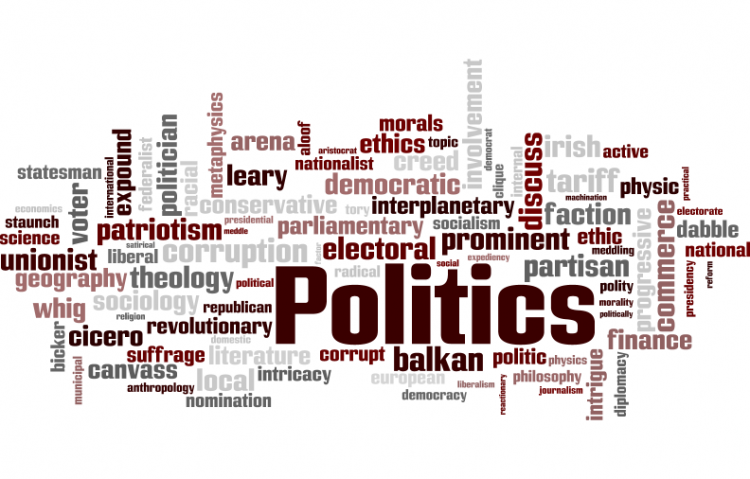
- Target:
- ACLU
- Region:
- United States of America
July 30, 2006
Under truth-in-advertising principles, the ACLU should be an acronym for Anti-God Communists and Lunatics United instead of American Civil Liberties Union. But cunning far leftists prefer seductively sensible-sounding names to truth in advertising.
Likewise, the Center for Constitutional Rights should be renamed the Center for Unconstitutional Wrongs.
The Associated Press reported that these two self-misdescribed "civil liberties" organizations filed lawsuits in United States District Courts in New York and Detroit attempting to block President Bush's warrantless eavesdropping program (which is designed to prevent the horror of terrorist attacks on America), arguing, absurdly, that such electronic surveillance is unconstitutional, because it involved Americans receiving calls from abroad from terrorists or suspected terrorists.
The New York suit, filed on behalf of the Center and individuals, named President Bush, the head of the National Security Agency, and the heads of the other major security agencies, challenging the NSA's surveillance of persons within the United States without judicial approval or statutory authorization.
It seeks an injunction that would prohibit the government from conducting surveillance of communications in the United States without warrants.
The Detroit suit, which also names the NSA, was filed by the ACLU along with the Council on American-Islamic Relations, Greenpeace and several individuals.
Just what America needs during a War on Terror: to distract the government's attention from that war to litigating with egomaniacs bent on undermining America and aiding and abetting the terrorists.
Were companion suits filed against the terrorists, along with a request for an injunction against them calling people in the United States as part of their war on America?
Of course not.
President Bush has explained that the wiretapping is legal and necessary, pointing not only to his inherent power as Commander-in-Chief, but also to a congressional resolution passed after the attacks of Sept. 11, 2001, that authorized him to use force in the fight against terrorism as allowing him to order the program.
The program authorized eavesdropping of international phone calls and e-mails of people deemed a terror risk.
To protect America, a President can go much farther than that, of course..
In 1944, during World War II, in Korematsu v. United States, the United States Supreme Court held that it was legal to exclude all persons of Japanese descent from their homes and communities by military fiat power, the threat of the Japanese during World War II being perceived, rightly or wrongly, as sufficient in the circumstances, because "the power to protect must be commensurate with the threatened danger."
These days, with World War II won and the threats of Nazism and Communist distant history, the United States Supreme Court decision in Korematsu is viewed as having gone too far. Perhaps so (as former Federal Bureau of Investigation Director J. Edgar Hoover argued to Franklin Delano Roosevelt, then America's President and Commander-in-Chief). But surely President Bush's limited warrantless surveillance is hardly "unreasonable" after September 11, 2001.
The Fourth Amendment protects property and prohibits only "unreasonable searches and seizures." It implicitly acknowledges that some warrantless searches and seizures would be reasonable and it was not written and ratified to help America's enemies wreck havoc.
In 1921, in Gouled v. United States, 255 U.S. 298, the United States Supreme Court explained not only that the Fourth Amendment banned only such searches and seizures as are "unreasonable," but also that it is to be construed in the light of what was deemed an unreasonable search and seizure when it was adopted and in a manner to conserve public interests as well as the rights of individuals.
Protecting America from terrorist attack trumps the interest of Americans who prefer that their calls with terorists and/or terrorist suspects be private.
Wiretapping was NOT within the purview of the Fourth Amendment. So said a majority of the Supremes, correctly, in Olmstead v. United States, 277 U.S. 338 (1928). In Olmstead, the Supremes reviewed convictions obtained on the basis of evidence gained through taps on telephone wires in violation of state law. On a five-to- four vote, the Court held that wiretapping was not within the confines of the Fourth Amendment. Chief Justice Taft, writing for the Court, set forth two sound reasons for the sensible conclusion: (1) inasmuch as the Fourth Amendment was designed to protect one's property interest in his premises, there was no search so long as there was no physical trespass on premises owned or controlled by a defendant; and (2) all the evidence obtained had been secured by hearing, and the interception of a conversation could not qualify as a seizure, for the Fourth Amendment referred only to the seizure of tangible items.
Chief Justice (and former President) Taft was right! Winning the War on Terror and avoiding catastrophic terrorist attacks are legitimate public interests, since the Constitution was not created as a suicide pact.
The ACLU is unAmerican, unbalanced, unfair and unsafe!
The ACLU should be an acronym for Anti-God Communists and Lunatics United instead of American Civil Liberties Union.
The ACLU has a history of practices that are intended to destroy the very fabric of a free society. Their practice is destructive to the United States and does not represent the majority.
You can further help this campaign by sponsoring it
The ACLU: UNAMERICAN, UNBALANCED, UNFAIR, UNSAFE petition to ACLU was written by Michael Walls and is in the category Politics at GoPetition.